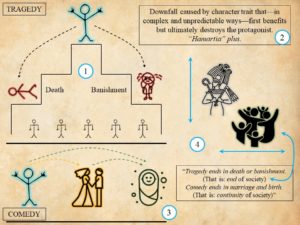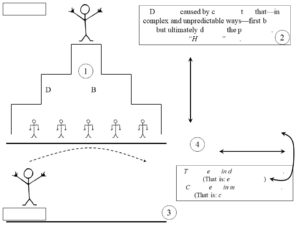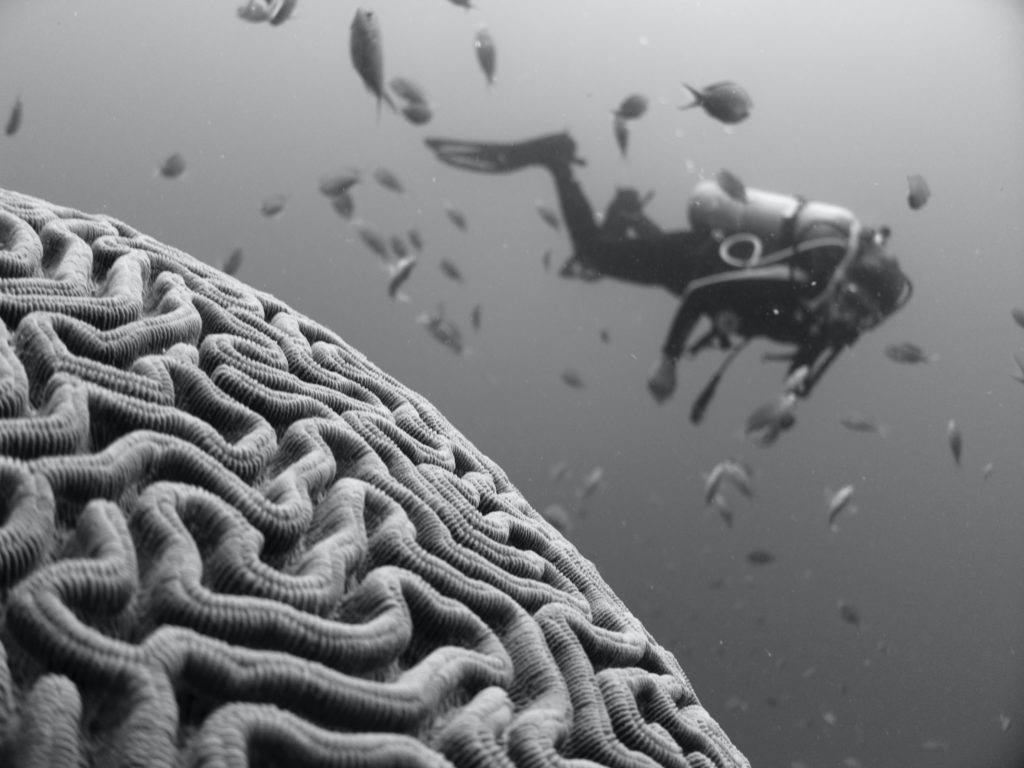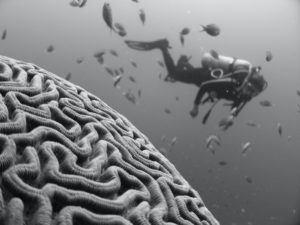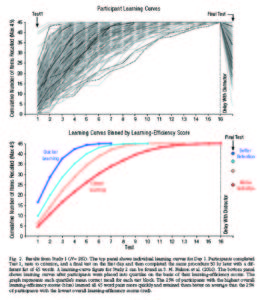My work in this field starts with a simple logical argument:
A: Learning happens in the brain and the mind.
B: Therefore, teachers might benefit from knowing more about the brain and the mind.
C: Therefore, we should hang out with people who study brains (neuroscientists) and who study minds (psychologists). We can learn from them, and they can learn from us.
So far, so good.
That seemingly simple logic, however, gets complicated quickly.
First — as I argue frequently — we benefit MUCH MORE from studying psychology than neuroscience.
Second — again, a refrain here on the blog — we need always to remember context and nuance.
For example:
Teaching 1st graders might require different skills and techniques than teaching 8th graders, or college students.
Sometimes neurotypical students benefit from different teaching strategies than non-neurotypical students.
Cultural differences shape classroom expectations, and might thus require or forbid various teaching strategies.
In other words, my simple idea — “improve my teaching by learning brainy stuff!!” — quickly requires all sorts of subtleties.
In fact, I’ve just stumbled across a new one. Let me try to explain.
To The Classroom, and Beyond
As an English teacher, I live in a wordy world.
We study poems and write essays and read Zora Neale Hurston and revel in grammar. (Well, I revel. My students graciously put up with me.)
As the Prince of Denmark once said: “Words, words, words.”
To teach these English-y topics, I’ve got lots of strategies:
Retrieval practice: “What’s the difference between a direct object and a predicate nominative…Sylvia?”
Managing alertness: “Alistair and Yazmeen, please write your answers on the board.”
Working memory load reduction: “What’s our acronym for the 4 key verbs?”
Research suggests all this wordiness will help my students learn.
HOWEVER, not everything that students learn boils down to words.
Yes, SOME knowledge is “declarative“: I can say it out loud.
Yet OTHER knowledge is “procedural“: something I do, not something I can say.
Imagine, then, that I’m teaching someone how to play golf. As they practice, should I use those same teaching strategies? Will my players benefit from translating their physical activity into words?
For instance:
Retrieval practice: “Describe the best stance for a putt…Sylvia.”
Working memory load reduction: “What’s our acronym for the ideal golf swing?”
Will words, words, words help golfers?
Plot Twist
Just this last week I’ve started finding research raising intriguing doubts.
The research suggests:
Some kinds of knowledge aren’t really verbal: say, for example, a golf swing.
Asking students to put not-verbal knowledge into words as they learn actually gets in the way of learning.
In other words, if I ask a golfer to describe her swing while learning, I’m asking her to cram procedural knowledge into declarative form.
That translation — put “not words” into “words” — makes learning harder.
I’ve been using golf as an example because the studies I’ve found focus on golf skills.
In this study, novice golfers learned less when asked to describe their golf strokes.
In this study, expert golfers improved less under similar circumstances.
But off the top of my head, I can think of all sorts of school topics that might (MIGHT!!) fit this category:
Pottery and painting and dancing
Handwriting
Manipulating microscopes or pipettes or other science-y tools
Shop
If the golf research applies to these procedural skills, then many of my word-based teaching strategies need a substantial rethink.
Not So Fast
In this highly speculative post, I should rush to include several cautions:
First: I haven’t yet found any research applying this idea to the school subjects I’ve mentioned. I’m extrapolating — always a perilous thing to do. (Most of the research, in fact, focuses on facial recognition.)
Second: this line of reasoning might lure some folks into “learning-styles” flavored teaching theories. Beware that siren song!
Third: I might be overstating the changes that flow from this possible conclusion. For example, my pottery students should still do retrieval practice — but they should respond to questions by showing me rather than telling me the answers.
As you can tell, I’m still working out these ideas in my head. If you have insights — or research suggestions — I hope you’ll share them with me.
By the way: this research topic is called the “verbal overshadowing effect.” That is: when I translate procedural knowledge into declarative terms, the mistranslation into words (“verbal”) overshadows the actual content knowledge — which is at its root procedural.
Flegal, K. E., & Anderson, M. C. (2008). Overthinking skilled motor performance: Or why those who teach can’t do. Psychonomic Bulletin & Review, 15, 927-932.
Chauvel, G., Maquestiaux, F., Ruthruff, E., Didierjean, A., & Hartley, A. A. (2013). Novice motor performance: Better not to verbalize. Psychonomic bulletin & review, 20, 177-183.






